Over the history of Barn Finds, thousands of vehicles have been profiled. You would think that cars that saw high production numbers would be frequent subjects, and you would be correct. However, a particular British sports car seems to find its way onto these pages far more often than its initial sales would suggest. You have to ask why cars like this 1973 Lotus Europa for sale on Craigslist in Gurnee, Illinois, and their brethren show up time and time again on Barn Finds. While Lotus handling has a stellar reputation, they have earned a diametrically opposite reputation for quality control. Once again, we ask ourselves if putting up with Lotus idiosyncrasies is worth the payoff in speed. The seller of this restored and lightly modified Europa must think so, given all of the work done to perfect the car. Would it be better to pick up a beater and build it up, or just cut this seller a check for the $38,500 asking price and head for the nearest twisty road? Thanks to Tony P. for this tiny British find!
I have written up more than a few Europas as I slowly creep up to my 1,000th story on Barn Finds. Each one comes back to two things: sublime Lotus handling and abysmal quality. I also frequently mention Colin Chapman, the head of basically everything during Lotus’s early history. Chapman was a genius, and he was a man of extremes. He obsessively built every car to maximize its cornering potential and was utterly ruthless about saving weight. Thus, his cars gained a reputation for being fragile. In racing, fragile means dangerous. In the world of production cars, fragile means poor quality and angry customers.
Yet a funny thing has happened over the years. Many of the people who have driven a Lotus seem to catch Chapman’s obsession like a bad cold. They too become obsessed with handling and soon embark on an epic journey in which they endeavor to take a Lotus and make it faster, handle better, and craft it into what they want in a street-driven sportscar. That usually means making the car reliable and fixing all of the Lotus quality issues, which can be a task comparable to dividing by zero. We have seen it with gorgeous little Lotus Elans, and we see a lot of it with the mid-engine Europa. You don’t see it too much with the Lotus Esprit. Nobody seems to have the budget to take one of those gorgeous wedges to perfection.
The 1973 Lotus Europa you see here is the result of one person’s obsession with the platform. The known story of this Lotus started with its second owner, who drove it a paltry 50 miles and then decided to disassemble it. Once disassembled, the car sat indoors for 25 long years. After purchasing the car from its second owner, the seller embarked on a mechanical restoration. For a Europa, this means separating the car into its three main sections: backbone frame, body, and engine. The seller does an excellent job detailing the work done to the car in photographs inserted into the ad. The pictures are very beneficial for anyone wanting to understand the intricacies of a Europa.
The exterior paint and interior upholstery were in excellent shape thanks to the 25-year hiatus. What you see in the picture above, believe it or not, is the upholstery the car left the factory with. The only changes made were the addition of a JVC AM/FM/CD/Bluetooth stereo and a fresh set of mats for the trunk, boot, and both sides of the cockpit floor. While the car displays the usual waviness in the dash and cracking in the heavily varnished wood dash panel, the interior presents very well compared to Europas we have seen in the past.
Above is a photograph of the engine during the restoration. The photograph is very helpful for understanding how the engine and transmission combination is built for a Europa. The engine was built by PHP Race Engines and was put on a dynamometer after the build. While the 146-horsepower figure it achieved seems paltry to today’s horsepower numbers, you have to remember that the car weighs somewhere in the neighborhood of 1,600 pounds. The seller also decided to add a few goodies to the package, namely a set of Mikuni carburetors, electronic ignition, a Dave Bean water pump, stainless steel headers and mufflers, stainless steel water transport pipes, and an aluminum drive pulley. Europa fans will also be happy to hear that this later car is equipped with the more desirable five-speed transmission. The power brake setup was also removed during the restoration.
Above is a picture of the Lotus backbone chassis that currently lives underneath this car. This chassis is made up of a set of individual plates welded together to form a very rigid framework to prevent flexing under extreme cornering. The major weakness of this assembly is corrosion. You can get a whole new backbone chassis if the original is too far gone, but this one is surely in good condition due to the long-term storage the car endured. After being reassembled, the car has been driven just 1,500 miles and is said to run great.
You have to wonder if the seller finally got tired of shoveling money at making this Europa into the Lotus they wanted it to be. They started with a car in pieces that was in very good condition, restored and modified it as they saw fit, and ended up driving it for 1,500 miles before putting it up for sale. Maybe that magical point where the car handles great goes fast and stays together like a normal car never materialized. Or the seller achieved their goals with the project and decided to move on to something else. What we do know is that Lotus Europas tend to make people spend a lot of money chasing a dream. If you have the means, I guess that is not a bad way to spend your time.
Have you ever driven or owned a Lotus Europa? What do you think makes people obsess over these cars? Do you think that all of the effort is worth it? Please share your stories and thoughts in the comments.
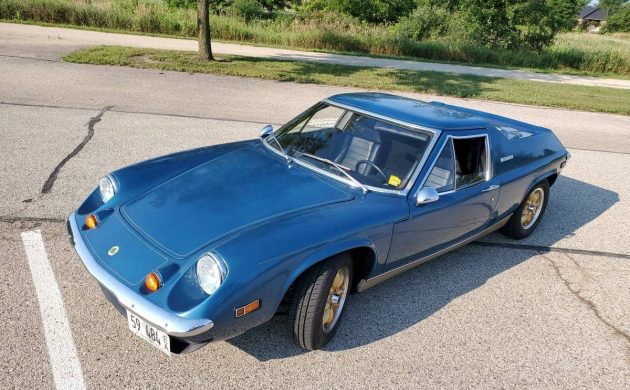
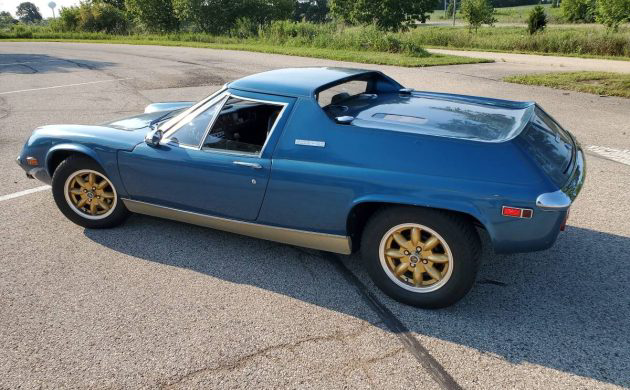
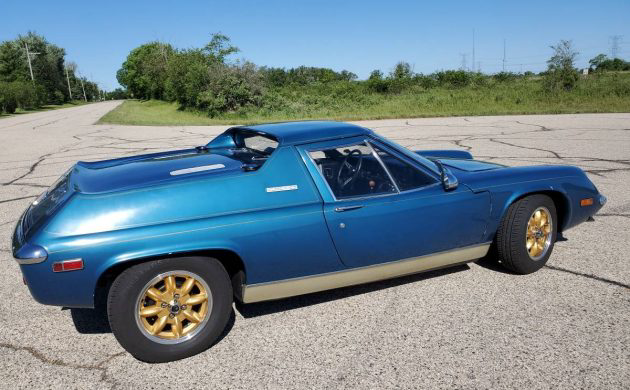

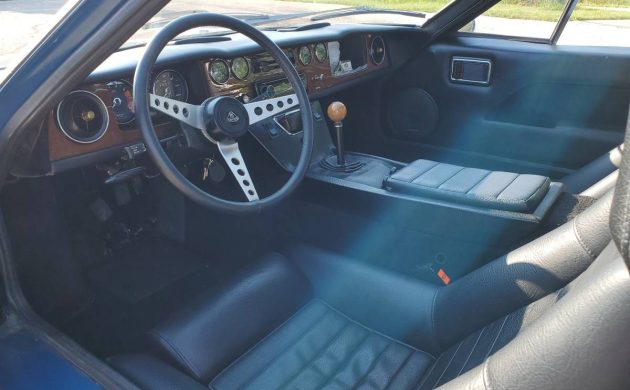
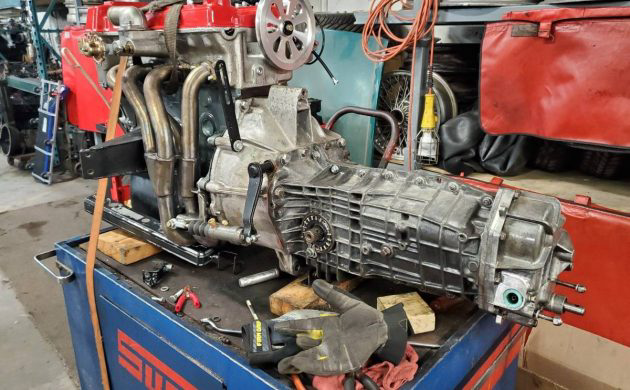
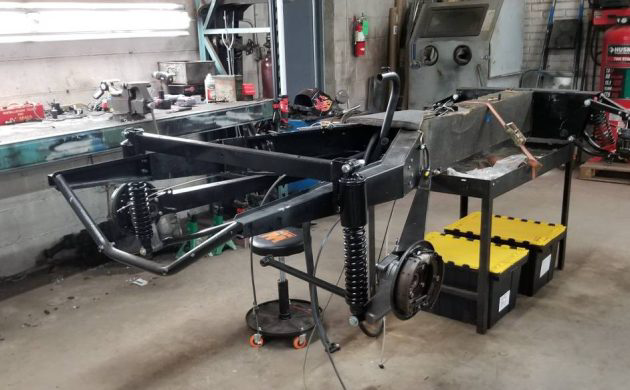


Own and drive a Lotus and anything else is a truck.
absolutely well said
That is a beautiful example.
Nice find Tony 👍.
Yes i had a 1969 many years ago, would be fun to still have it. Yes this is well sorted but now the price is very high, like most cars are going for way more than years ago. But for that amount you could get so much more with tons of more HP.
I don’t think HP is the point here. I could be wrong.
Would have to see it run and drive to believe it,I’m 60 years old never seen one in running condition, seen lots that just needs this or that
I put Over 300,000 miles on my 67. I think it was the first or second in the U.S. Pull out windows and the R-16 and yes .. we were in the shop quite often. Claudius Lotus in the O.C. was the savious many-a times. Two Europas, an Esprit (200,000 miles) and now a Nomand……. Yep, I like cars.
A very nice write-up. Factual, with interesting insights, and no hype or shilling for the car. Thank you. A low-key approach is appreciated. I do not know Fact One about the Europa, but the price seems fair based on the work performed. it also seems this is an open-road car only. Driving this in the sea of SUVs and monster pick-up trucks on the roads today does not seem like fun.
$38.5K for a Europa?
I haven’t read the article yet, but the ask amazes me!!
Had a 72 jps. Electrical by Lucas was terrible. Great car. Wish I still had it.
Seems well sorted, wonder why power brakes were deleted. My 65 Elan didn’t have them, braked very well.
To those who think price is high, well sorted Elans are getting beyond this number, and you may say apples to oranges, but to some extent, old Lotusss in general are not getting more numerous and are worth what you’re willing to pay.
The original oxymoron – “Perfect Lotus”. I had two of them. They were awful cars. The old adage is that Lotus owners need lots of friends so they will always have someone to come get them.
I had a 73 and a 74. They were equally unreliable. Yet, I loved every mile spent in mine. If $38K seems high, go drive a good one. You’ll write the check in a heartbeat.
Bought new a 73 Europa Spl JPS . there was almost nothing that could out handle it. and low it was lower then my brother friends Corvette of that time. The pedals are so close the first time you drive it it is like OMG I will be stepping on all of the but once you have driven the cars the pedals were spaced great, the shifts were very short , never had a problem with the cable for the clutch,
OK, I read it now. Beautiful Europa! Those words never came out of my mouth before-
I deleted the “power” brakes on mine, too. It used an amazingly complicated dual vacuum booster set on the left side of the engine compartment with tubing designed to leak no matter what. Parts were out of sight in price if you could find them at all. Deleting the vacuum canisters required a change in the master cylinder which was up front in order to achieve sufficient pedal pressure. After much piddling around with orifice sizes, I gave up. Then I found that a TR-4 master cylinder was a drop in. A Lotus guy at Elkhart Lake told me that the only reason for power brakes was to prevent long term flexing of the fiberglass that the brake cylinder/pedal hanger was attached to. I made an aluminum reinforcement and glassed it all in with a body repair kit. Worked perfectly.